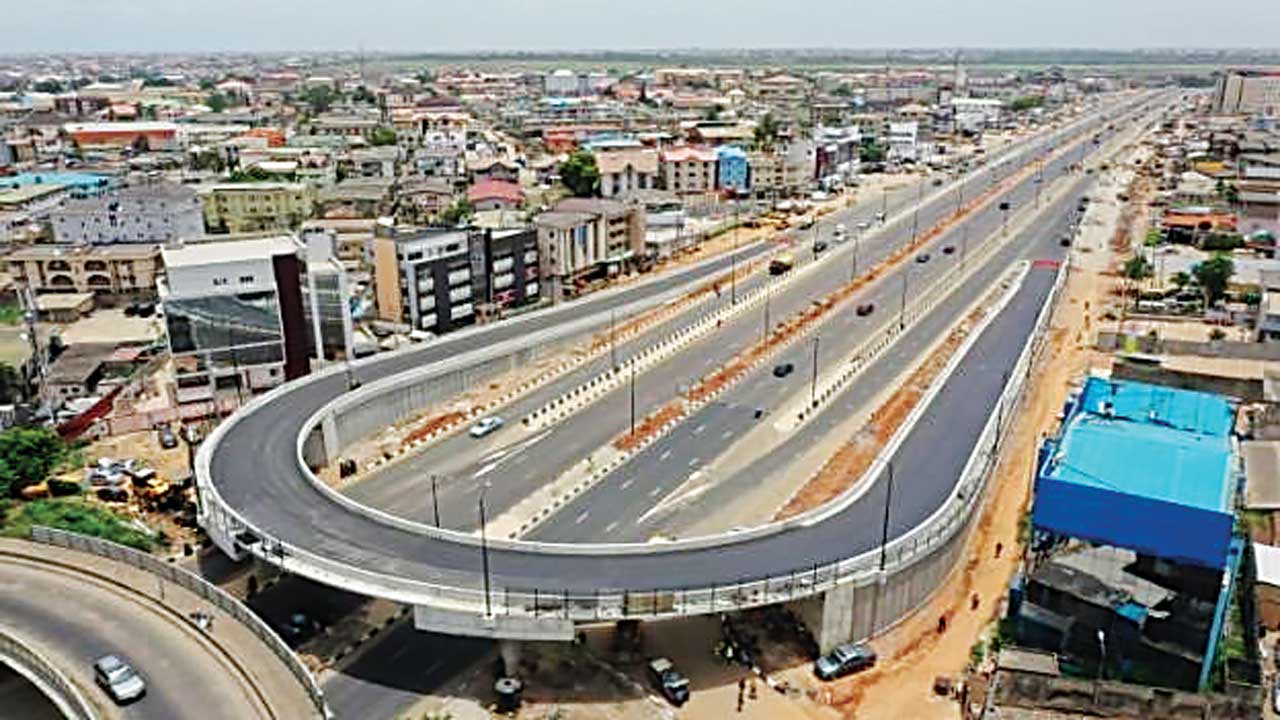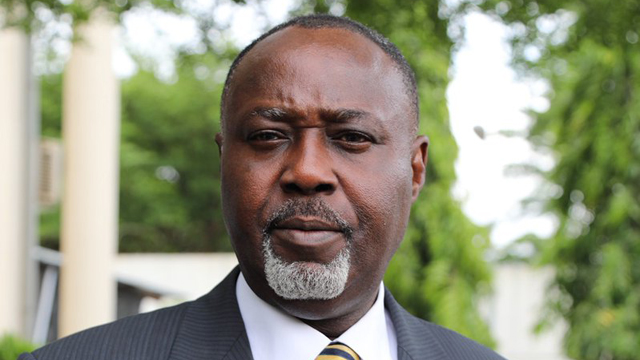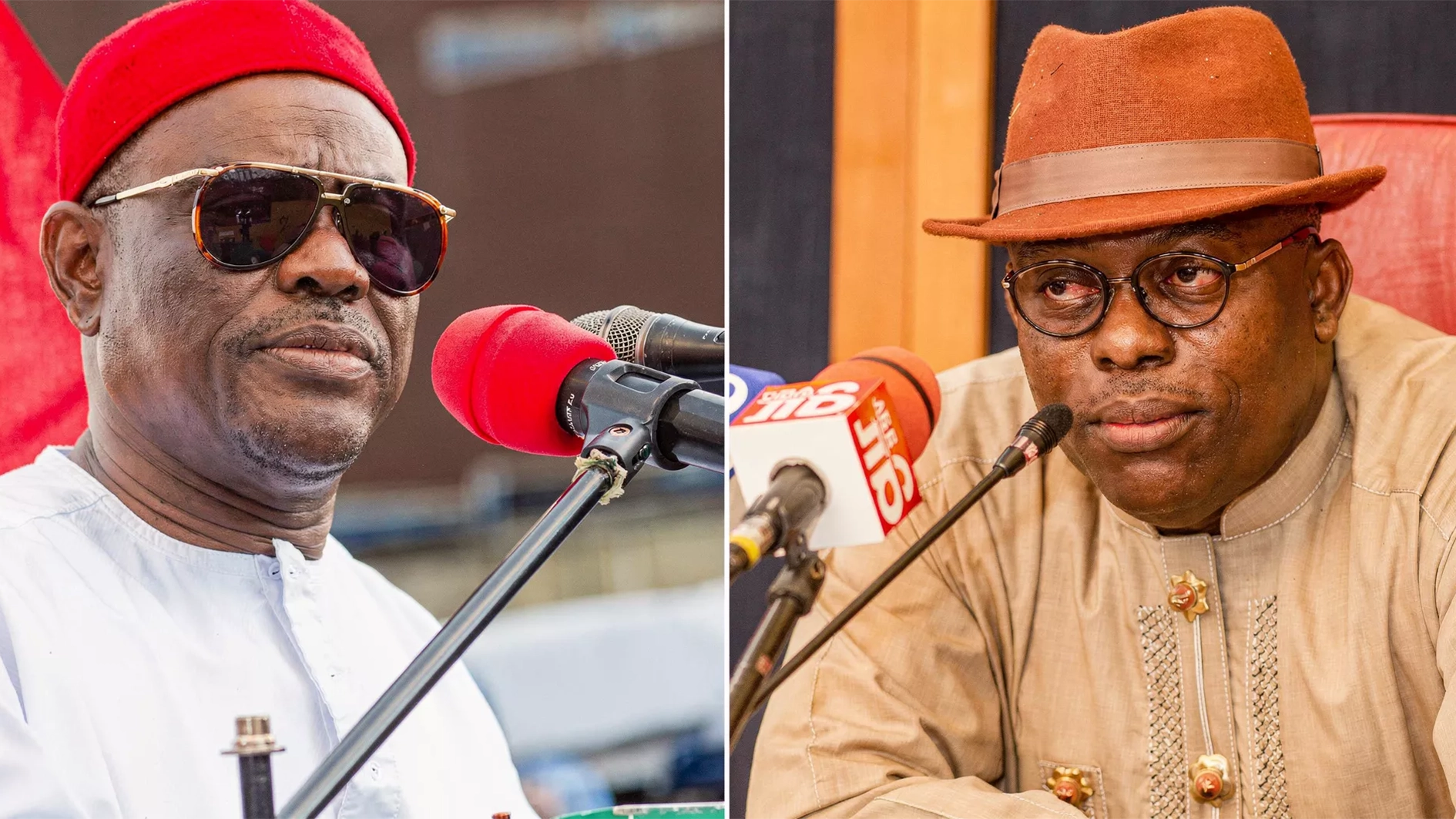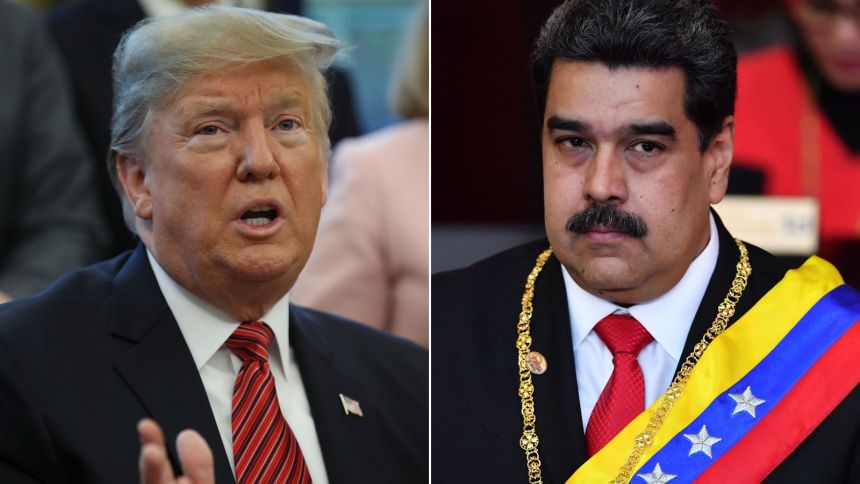
• Fear over completion after May 29 handover date
• Governor tasked on details of N15b school infrastructure
The thick dry dust plumed into the packed arena as the vehicles galloped to a halt. An enchanted crowd of party members and residents went into frenzy not minding hours of waiting in the sun. They swam at the line of cars to catch a glimpse of their party’s candidate. But not so soon.
About a kilometer of traveling inwards, the Ibeju Lekki campaign ground had coated the entourage with a uniform colour of brown dust. Blinded windshields and windows caused a brief hide and seek game to ensue, at least not until the sitting governor, Babatunde Fashola, and his party’s choice of successor, Akinwunmi Ambode, emerged from an open roof to wave brooms – emblems of the All Progressives Congress (APC) party – at the jubilant crowd.
The frenzied but steaming hot afternoon notwithstanding, the yawning infrastructure gap was not lost on Ambode when he mounted the podium. “I’m one of you because I have lived among you,” he said. “So, I understand your needs and I will meet them,” he promised, as he pleaded for votes that won him the 2015 gubernatorial election.
The truth is he had pro tanto repeated the same line at all campaign grounds visited in the build-up to the 2015 general elections. As a career civil servant and a former Accountant General for State and local governments’ finances, he is primed to be a man of the people.
A ‘people-oriented’ government
True to type, the Ambode-led administration put up a “people-oriented” go-round project drive, as a departure from his predecessor, perceived to be elitist and capitalist in disposition. Rather than concentrate huge resources on state-of-the-art profit-oriented projects like Lekki-Ikoyi Link Bridge or Lekki-Epe Expressway, Ambode decentralised resources into pockets of projects to go round the nooks and crannies of the Lagos mega city.
So, only few were surprised when the state government in January 2016 rolled out the simultaneous construction of 114 roads across the state. The projects were valued at N19.4 billion.
The second phase of the projects took off two years later, with a total of 181 roads also spread across the 20 Local Governments (LGs) and 37 Local Council Development Areas (LCDAs). The cost estimate was to the tune of N18 billion.
The massive infrastructure drive did not account for other grand modern projects like the 160-metre long Ajah Bridge, the 1.3km Abule Egba Bridge and the yet-to-be completed Pen Cinema flyover – an initiative of the Lagos State House of Assembly Speaker, Mudasiru Obasa.
The Commissioner for Works and Infrastructure, Adebowale Akinsanya, remarked that the provision of these “world class infrastructural facilities” was to support the growing population of the state, and to date, no fewer than 450 out of the 9,200 roads in Lagos had been paved.
“Roughly for the last three years, if you look at the major road projects and others we have embarked on and completed, I can conveniently reveal that we have done between 450 and 500 and we still have a lot in stock for the people. In terms of the ongoing, we have about 60 or 70 projects,” Akinsanya said.
Landmark infrastructure
Apparently most notable among these projects are the Oshodi transport inter-change facility and the rehabilitation of the Oshodi-Lagos Airport road rehabilitation and expansion, both recently inaugurated.
The Oshodi legacy project aptly qualifies as the next best thing to ever happen to the most popular bus terminus, after Fashola’s administration restored a measure of sanity and made it a thorough-fare for motorists and pedestrians in 2008.
The Public-Private Partnership initiative, between the Lagos State Government via Ibile Holdings, Translink Capital Development Limited and Planet Projects Limited, is in line with the Oshodi modernisation plan, which includes urban renewal, environmental regeneration as well as transformation and security. The mega project aims to consolidate existing 13 city and interstate bus parks in Oshodi into three multi-story bus terminals, meeting the needs of about 300,000 passengers daily.
According to the project design, terminal one will cater for inter-state transport activities. Terminals two and three will serve intra-city transport activities. Uniform to all are standard facilities like waiting areas, loading bays, ticketing stands, driver lounge, parking areas and restrooms.
Accessible walkways, pedestrian bridges and state-of-the-art sky-walk interconnect all the three terminals. While bus lanes, lay-bys, proper waste management strategy and green parks aim to soften the environment, fencing, street lighting and a dedicated security team for the ever-busy corridor reinforce safety and protection in the area.
Ditto for the road leading to the Murtala Muhammed International Airport (MMIA). The airport is the busiest in the country with over 40 per cent of about 15 million yearly air passengers in Nigeria. Years of abandonment of the road came to an end with the APC ruling party capturing the centre, and letting the road off its hook for the more solvent Lagos State government to fix.
In response to the challenge was a 10-lane road design, adorned by two flyover bridges, two pedestrian bridges, multiple laybys and services lanes quite befitting of modern international airport corridors.
The projects, though still at the completion phase, were enough to jolt the interest of President Muhammadu Buhari, to have them inaugurated about a month to the end of Ambode’s tenure.
“Your governor has performed satisfactorily,” Buhari said, standing at the heart of Oshodi during the commissioning. “And we should all commend him for his contribution to the growth and development of Lagos State.”
The cost of urban renewal
Modernisation around the world costs an arm and a leg, and the case is not any different in Ambode’s Lagos. Let’s face it, the two-phase construction of 232 roads already cost the state at least N37. 4 billion – about 50 per cent of the annual budget size of some states.
But unlike in other places, transparency in projects, contract awards, and their financing is still an alien concept. For instance, there is no official disclosure yet on the cost of the Oshodi-Lagos Airport road rehabilitation and expansion, beyond estimates of about N50 billion to N60 billion. Ditto for the Transport Interchange, which might have cost the state government N22.4 billion ($70 million).
More so, these are projects that are not in the State’s Appropriation Law of 2017 or 2018. Ambode, however, offers a clue on their financing.
At the projects’ inauguration, the governor disclosed that his administration invested into the two projects the second tranche of the Paris Club refund, in addition to the Federal Government’s refund on the backlog of federal road rehabilitations executed by states.
The first tranche of the Paris Club refund to states was utilised to pay the 40 per cent down-payment for the 820 buses.
It was not clear how much of a refund Lagos State got from the FG for federal road projects undertaken, though the debt was already in excess of N51 billion at the twilight of the Fashola’s administration.
That aside, details released by the Federal Government showed that Lagos has received as much as N25 billion as Paris Club Refund. Paris Club refund is a partial settlement of long-standing claims by state governments relating to over-deductions from their federation account allocation committee (FAAC) allocation for external debt service arising between 1995 and 2002.
The Ministry of Finance’s breakdown of 2016 payment of a total of N516. 4 billion to 36 states showed that Lagos got N16.74 billion in the first tranche. In the second tranche, Lagos got a pie of N8.37 billion out of the N243.8 billion largesse.
So, how much of N16.74 billion was sunk into the 40 per cent down payment of 820 buses? Again, how much of N51 billion FG’s refund plus N8.37 billion Paris Club refund went into the Oshodi and Airport Road projects? No answer yet.
The State Commissioner for Finance, Akinyemi Ashade, was reached on this subject but he would not yield. Ashade told our reporter via phone that he was out of town, in a meeting in Abuja, and would be more disposed to talk the following day. Several calls and messages were sent the following day, but he would not reply.
Indeed, the projects compare with similar modern infrastructure around the world, though with variations in cost and transparency too.

For instance, the Oshodi transport interchange compares with the Chennai Mofussil Bus Terminus in Chennai, India – the largest bus station in Asia. Sitting on 37 acres of land, the Chennai terminus, as at 2010, handled more than 501 buses at a time, and 250,000 passengers a day. It was inaugurated in November 2002, and built at the cost of 103 crores or N1.03 billion.
Another facility like it is the largest underground bus station in Europe, Kamppi Centre of Helsinki, Finland, completed in 2006. The terminal cost €100 million or N40.5 billion to complete and took three years to design and build. Today, the bus terminal, which covers 25,000 square meters, is the busiest bus terminal in Finland. Every day, the terminal has around 700 bus departures, transporting some 170,000 passengers.
The designs for the new Cardiff bus interchange station in Whales, United Kingdom, were approved early this year and to cost £100 million or N46.9 billion. It includes a new bus station with 14-stand interchange; 22-storey apartment block of 305 flats, offices and shop units. Delivery date is 2021.
“This is our report card, Mr. President,” Ambode said at the commissioning, though silent on details. “We have used your approval and releases judiciously because we believe strongly in you, in your leadership and in your vision for our country. This is our modest contribution to the growth and development of our state and national development of Nigeria.”
Ambode is optimistic that with the coming on board of the projects, “the future prosperity of the state is secure.”
‘Future prosperity’ and Lagos debt profile
The Babatunde Fashola-led administration bequeathed to Ambode a debt profile of N418 billion, payable over the next five years.
A breakdown of the debt profile showed that commercial bank loans to the state stood at N69.7 billion; bonds, N141 billion; external loans of N144.8 billion and development policy operations of N62.7 billion, totaling N418.2 billion.
But how has the state faired lately? The Nigerian Domestic and Foreign Debt 2018 Q4 report, released by the National Bureau of Statistics (NBS) in April, showed a Lagos debt burden now in excess of N1 trillion.
The state is not alone in the debt circle, as the Nigerian States and Federal Debt Stock data as at 31st December 2018 had hinted that the country’s foreign and domestic debts stood at $25.27 billion and N16.63 trillion respectively.
But Lagos State allegedly has the highest foreign debt profile among the thirty-six states and the FCT accounting for 5.64 per cent. Of the total domestic debt, Lagos state accounted for 3.19 per cent.
Debt Management Office (DMO) document titled: ‘States, Federal Capital Territory (FCT) and Federal Governments’ External Debt Stock as at June 30, 2018, has Lagos as the state with the highest foreign debt in the country, with a liability put at $1.45 billion.
The 2018 second quarter report by NBS showed that Lagos’ total debt profile has risen to N1.04 trillion.
BudgIT analysis showed that Lagos State maintained the highest external debt stock of $1.47 billion while its Total debt stock at the end of 2017 was N813.04 billion, and domestic debt is on the rise. In 2017, domestic debt grew from 2016 levels of N311.76 billion to N363.29 billion. Lagos State FAAC allocation also reduced from N105 billion in 2014 to N78.7 billion in 2016.
However, Ambode lately explained that the current foreign debt owed by the state government was inherited from previous administrations before his tenure, which began in 2015.
The governor, who made the disclosure during an interview, said despite the numerous projects the government had planned for the development of the state, the state’s Internally Generated Revenue (IGR) did not seek foreign option for financial support.
The cost of secrecy
Fact is that there is no information on the projects on the state’s official procurement website and officials would not respond to questions on how much spent on each of the projects.
For instance, in November last year, Ambode said his administration had spent N15 billion on infrastructure on state-owned schools. But he did not disclose what was done or where they were sited.
Such vague statements on government expenditure often irk civil society activists, who always accuse the state of running a government that lacks transparency and accountability.
A member of Joint Action Front (JAF), Achike Chude, commended the state government for the transformation, “but if they spend the people’s money on behalf of the people and deliberately refuse to tell the people what they have spent, then that is a deviation from the ethos of democracy.”
Chude said non-disclosure made it difficult for anyone to fully assess the project. “When there is secrecy, then suspicion will thrive. Every government ought to hold itself accountable to the people because governance is hinged on the approval of the people; as the people are supposedly the masters while the leaders are the servants.
“When you have a situation where a government spends money supposedly on behalf of the people and refuses to tell the people how much has been spent, it does not speak well of that government and the projects regardless of the functionality and relevance of the projects.”
The First Vice President of Nigerian Institute of Building, Kunle Awobodu, commended Ambode’s government for adding value to the environment, adding that the cost of the projects may not be important.
Lanre Suraj of Civil Society Network Against Corruption added that, “If there is anything called transparency to be deduced under the projects of Ambode and almost all successive Lagos State governments, you will not find the ‘T’ that spells transparency.
“You don’t know the contractors, the amount, the time line and extent. And these are the ingredients for measuring transparency; enabling delivery, ensuring sustainability and durability of the projects. That is why it is very difficult to see the actual budget of Lagos State.”
Suraj further alleged that resources were mismanaged in the name of projects. “They allocate huge resources without any sense of transparency and accountability. With his exit, some of these uncompleted projects would be abandoned.”
For instance, the reconstruction of the Lagos-Badagry Expressway has stalled since the exit of Fashola-led administration. “So, where is the benefit to the people?” he queried.
Suraj said the only way out is to “consistently engage and expose them.”
“Until we have a concerted effort and realise that the masses are the potential losers, the situation will not change.”
Co-Founder and Director at BudgIT, Oluseun Onigbinde, added that Governor Ambode still leaves a legacy of opacity that has been symptomatic of Lagos State governments.
“Lagos State has a very robust procurement law but for years, the agency involved was severely underfunded. The Lagos Public Procurement Agency recently published a few contract items for the public. My organisation cannot ascertain that the process is transparent. A transparent process must be inclusive which means budget items, tenders and decision mechanisms are made public.”
Onigbinde was, however, optimistic that Ambode’s premature exit would not stop the projects, as the incoming governor is also a member of the same party. “Government is a continuum and I believe the next administration will take the baton and run. Transparency in Lagos State is also very important,” he said.






